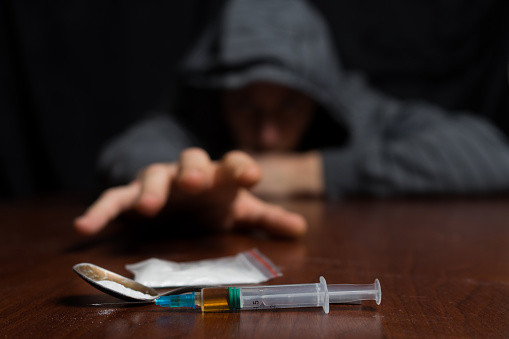Definisi
Gangguan perilaku seksual melingkupi gangguan yang luas, salah satunya compulsive sexual behavior disorder (CSBD). CSBD disebut juga sebagai hiperseksual, gangguan hiperseksualitas, atau kecanduan seksual. Jika Anda mengalami kondisi ini, Anda akan cenderung merasa keasyikan secara berlebihan dalam memikirkan fantasi seksual, dorongan atau perilaku yang sulit dikendalikan. Kondisi ini akan menyebabkan Anda merasa tertekan dan dapat berdampak negatif pada kesehatan, pekerjaan, hingga pada hubungan Anda dengan orang lain.
CSBD tidak hanya berupa fantasi seksual, tapi dapat disertai dengan pengalaman seksual yang dirasa menyenangkan, seperti masturbasi, cybersex, memiliki banyak pasangan seksual, menonton pornografi, hingga menyewa pekerja seks komersial (PSK). Ketika kebiasaan-kebiasaan seksual tersebut muncul dan menjadi fokus utama dalam hidup Anda, dan hal tersebut merugikan Anda atau orang lain, kondisi ini dapat merupakan CSBD.
Kondisi ini ditandai dengan adanya pola kegagalan yang terus menerus dalam mengontrol dorongan seksual yang intens sehingga terjadi perilaku seksual berulang selama periode yang cukup panjang, yaitu 6 bulan atau lebih. Lebih lanjut, hal ini dapat menyebabkan terjadinya penderitaan atau gangguan yang nyata dalam berbagai bidang kehidupan.
CSBD yang tidak diatasi dengan baik dapat menyebabkan kehancuran pada penghargaan terhadap diri, pekerjaan, kesehatan, dan hubungan Anda dengan orang lain. Tata laksana yang tepat dapat membantu Anda untuk mengatasi hal ini.
Penyebab
Meskipun penyebab CSBD masih belum diketahui secara pasti, diduga terdapat beberapa hal yang menyebabkan terjadinya kondisi ini, yaitu:
- Ketidakseimbangan zat kimia otak (neurotransmiter) seperti serotonin, dopamin, dan norepinefrin. Zat kimia tersebut berfungsi untuk mengatur mood Anda. Jumlah konsentrasi yang tinggi mungkin berhubungan dengan terjadinya CSBD.
- Perubahan jalur atau sirkuit pada otak. CSBD dapat menyebabkan kecanduan. Seiring waktu berjalan, hal ini dapat menyebabkan perubahan pada sikuit atau jalur di otak pada bagian reinforcement center. Seiring waktu berjalan, seperti jenis adiksi lain, semakin intens pula kebutuhan akan konten seksual dan stimulasi seksual agar Anda merasa puas dan senang.
- Kondisi yang berdampak pada otak. Beberapa jenis penyakit atau permasalahan kesehatan, seperti epilepsi dan demensia, memungkinkan terjadinya kerusakan pada bagian otak dan mengakibatkan terjadinya CSBD. Sebagai tambahan, pengobatan penyakit Parkinson dilakukan dengan memberikan obat yang bekerja sebagai agonis dopamine. Hal ini dapat menyebabkan terjadinya hiperseksual.
Faktor Risiko
Hiperseksual dapat terjadi pada perempuan dan laki-laki. Namun, kondisi ini cenderung lebih sering ditemukan pada laki-laki. Jika kondisi ini terjadi dan mempengaruhi siapa pun, terlepas dari orientasi seksualnya. Terdapat beberapa faktor yang dapat meningkatkan perilaku hiperseksual, yaitu:
- Kemudahan untuk mengakses konten seksual,
- Orang yang mengalami hiperseksual cenderung merrahasiakan secara pribadi aktivitas hiperseksual yang dimilikinya. Hal ini dapat memperburuk kondisi seiring berjalannya waktu.
- Terdapat adanya kondisi gangguan kesehatan mental lain, seperti gangguan mood (depresi atau kecemasan),
- Penyalahgnaan obat atau alkohol,
- Konflik dalam keluarga atau adanya anggota keluarga dengan permasalahan berupa adiksi atau kecanduan,
- Adanya riwayat kekerasan fisik atau seksual
Gejala
Terdapat beberapa gejala yang muncul ketika Anda mengalami CSBD yaitu;
- Anda memiliki fantasi, dorongan, dan perilaku seksual yang berulang dan intens. Kondisi ini dapat menyebabkan Anda menghabiskan banyak waktu dan hal ini dirasa berada di luar kendali Anda. Hal ini terjadi berkepanjangan, setidaknya 6 bulan atau lebih.
- Anda merasakan adanya dorongan untuk melakukan perilaku seksual tertentu. Setelah melakukannya, Anda merasakan lepasnya ketegangan sesudahnya. Namun, Anda juga merasa bersalah atau menyesal setelahnya.
- Anda telah mencoba mengurangi atau mengendalikan fantasi dan perilaku seksual, tetapi Anda gagal.
- Anda sering berbohong untuk menutupi perilaku hiperseksual
- Anda melakukan perilaku seksual sebagai pelarian dari permasalahan lain, seperti kesepian, depresi, kecemasan, atau stres.
- Anda mungkin terus terlibat dalam perilaku seksual berisiko tinggi, seperti berpotensi mengalami atau menularkan penyakit menular seksual, permasalahan di tempat kerja hingga masalah hukum,
- Anda memiliki masalah dalam membangun dan mempertahankan hubungan yang sehat dan stabil.
Diagnosis
Dokter Anda akan melakukan evaluasi psikologis pada Anda dengan mengajukan beberapa pertanyaan, berupa:
- Kesehatan fisik dan mental, serta kesejahteraan emosional Anda secara menyeluruh.
- Pikiran tentang seksual, perilaku, dan dorongan seksual yang sulit untuk dikendalikan,
- Penggunaan obat-obatan terlarang atau alkohol,
- Adanya permasalahan di dalam keluarga, hubungan dengan orang terdekat, atau lingkungan sosial yang terjadi pada Anda yang disebabkan oleh gangguan perilaku seksual yang Anda alami.
Dokter Anda mungkin juga akan menanyakan beberapa pertanyaan pada keluarga atau orang terdekat Anda mengenai kondisi Anda. Berdasarkan informasi yang telah dikumpulkan, dokter Anda akan menegakan diagnosis jika sesuai dengan kriteria.
Tata Laksana
Hingga saat ini tatalaksana pada hiperseksual sesuai dengan evidence-based atau berdasarkan bukti ilmiah. Namun, terdapat beberapa metode yang dapat dilakukan untuk menata laksana hiperseksual, yaitu dengan menggunakan (psiko) terapi dan obat-obatan.
Psikoterapi yang paling sering digunakan berupa cognitive behavioral therapy (CBT) dan psikodinamik psikoterapi. CBT dilakukan dengan fokus untuk mengidentifikasi hal yang memicu terjadinya gangguan perilaku seksual dan membentuk kembali kognitif yang terdistorsi tentang perilaku seksual serta menekan pencegahan kekambuhan. Psikodinamik psikoterapi dilakukan guna mengeksplorasi konflik inti yang mendorong munculnya gangguan ini.
Pemberian obat-obatan pada pasien CSBD dilakukan dengan memberikan beberapa jenis obat yang bertujuan mengatasi permasalahan pada zat kimia otak yang menyebabkan terjadinya hiperseksual. Namun, jenis obat yang diberikan sangat tergantung pada situasi dan kondisi kesehatan mental yang sedang Anda alami. Beberapa obat yang mungkin diberikan oleh dokter Anda dapat berupa antidepresan, naltrexone, mood stabilizer, atau anti-androgen.
Selain pemberian psikoterapi dan farmakoterapi, penatalaksanaan melalui grup pendukung dapat membantu orang dengan hiperseksual. Grup pendukung dibuat untuk membantu Anda untuk belajar tentang gangguan yang Anda alami, menemukan dukungan terhadap kondisi Anda, mengidentifikasi pilihan tatalaksana lain atau perilaku koping yang bisa Anda lakukan, serta membantu untuk mencegah terjadinya kekambuhan.
Komplikasi
Hiperseksual dapat menyebabkan berbagai konsekuensi negatif yang dirasakan oleh Anda sebagai penderita dan orang di sekitar Anda. Beberapa diantaranya berupa:
- Berjuang dengan adanya perasaan bersalah, malu, dan penghargaan terdahap diri yang rendah,
- Dapat menyebabkan munculnya gangguan kondisi kesehatan mental lain, seperti depresi, gangguan kecemasan, hingga bunuh diri.
- Hilangnya fokus atau keterlibatan dalam aktivitas seksual, atau mencari konten pornografi di internet saat sedang di tempat kerja sehingga mempertaruhkan pekerjaan Anda.
- Tingginya kemungkinan kontak dengan penyakit menular seksual seperti HIV, hepatitis B dan C, gonorea, sifilis, atau penyakit menular seksual lain,
- Terlibat dalam penggunaan zat yang terlarang, seperti narkoba atau alkohol.
- Ditangkap karena melakkan pelanggaran seksual.
Pencegahan
Penyebab pasti hiperseksual masih belum diketahui secara pasti sehingga belum diketahui dengan pasti bagaimana cara mencegah terjadinya hiperseksual. Namun, terdapat beberapa hal yang dapat dilakuakn untuk membantu menjaga menjaga perilaku seksual pada penderita hipersksual tetap terkendali, yaitu:
- Segera cari bantuan professional jika Anda merasakan adanya permasalahan gangguan perilaku seksual. Identifikasi dan pengobatan sejak gejala awal muncul dapat membantu mencegah semakin memburuknya gejala yang muncul pada hiperseksual dan mencegah terjadinya komplikasi,
- Segera cari pengobatan sedini mungkin pada gangguan kesehatan mental yang mngkin muncul bersamaan dengan hiperseksual yang Anda rasakan. Hal ini dikarenakan hiperseksual dapat semakin memburuk jika disertai dengan depresi dan kecemasan.
- Identifikasi dan cari pertolongan untuk mengatasi penyalahgunaan alkohol dan zat terlarang.
- Hindari situasi berisiko, seperti melakukan hubungan seksual berisiko.
Kapan Harus Ke Dokter?
Hiperseksual cenderung semakin meningkat dari waktu ke waktu. Segera kunjungi dokter Anda jika Anda merasa kehilangan kendali atas perilaku seksual Anda, terutama jika perilaku tersebut menyebabkan masalah pada orang lain.
Ketika memutuskan untuk mencari bantuan dokter atau psikolog, tanyakan pada diri Anda beberapa pertanyaan berikut;
- Apakah saya dapat mengontrol dorongan seksual yang saya rasakan?
- Apakah saya merasa tertekan atas perilaku seksual saya?
- Apakah perilaku seksual saya mempengaruhi pekerjaan atau menyebabkan munculnya konsekuensi negatif?
- Apakah saya berusaha untuk menyembunyikan perilakuu seksual saya?
- dr Anita Larasati Priyono
Healthline.com. (2018, 26 Juli). Sex Addiction: Symptoms, Treatment, and Outlook. Diakses pada 16 Februari 2022, dari https://www.healthline.com/health/addiction/sex
MayoClinic.org. (2020, 7 Februari). Compulsive sexual behavior - Diagnosis and treatment - Mayo Clinic. Diakses pada 16 Februari 2022, dari https://www.mayoclinic.org/diseases-conditions/compulsive-sexual-behavior/diagnosis-treatment/drc-20360453
Kowalewska, E., Gola, M., Kraus, S. W., & Lew-Starowicz, M. (2020). Spotlight on Compulsive Sexual Behavior Disorder: A Systematic Review of Research on Women. Neuropsychiatric disease and treatment, 16, 2025–2043. https://doi.org/10.2147/NDT.S221540


/62d244a608bfb.jpg)








